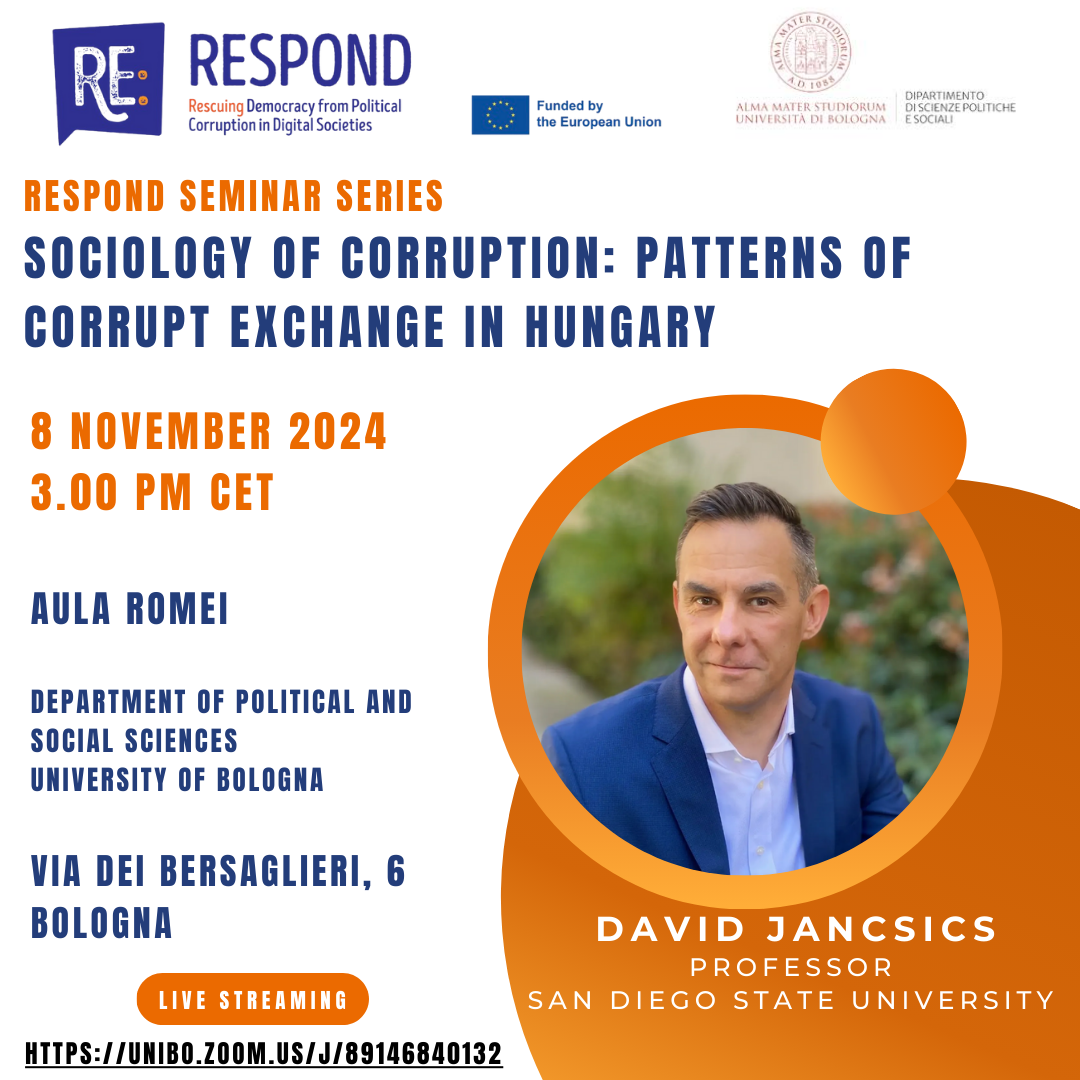Sociology of Corruption: Patterns of Corruption Exchange in Hungary – 8 November 2024

RESPOND Seminar Serieswith David Jancsics, Professor at San Diego State University
Aula Romei (Via dei Bersaglieri 6c, Bologna) e Zoom (Join Zoom Meeting
https://unibo.zoom.us/j/89146840132 )
What fostered corruption in Hungary? What are the most typical forms of corruption in this country? What do Hungarians think about it? What is the role of prime minister Viktor Orbán in this?
These questions will be addressed in the first RESPOND Seminar Series with David Jancsics, Professor at the School of Public Affairs at San Diego State University. He is the author of the recently launched monograph titled Sociology of Corruption. In the book, Jancsics proposes a novel sociological theory of corruption focusing on social status and relationships, network structures, and power dynamics as important explanatory factors of corrupt behaviour.
In Sociology of Corruption, a fresh approach is provided to the study of corruption in Hungary, which once seemed to be the most likely of the ex-communist bloc nations to catch up to the West and is, according to many experts and scholars, a country with a highly corrupt dynamic. Although his focus is on Hungary, Jancsics’s findings apply to other nations and cultural contexts.
Based on data from 2022, Hungary is now the most corrupt member state of the European Union. There is also a consensus among experts that a small clique of corrupt political actors has captured most Hungarian state institutions and a significant portion of the business sector.
This seminar is part of the RESPOND Seminar Series, sponsored by the Horizon Europe research project RESPOND (Rescuing Democracy from Political Corruption in Digital Societies), with Professor Alice Mattoni (Department of Political and Social Sciences, University of Bologna) serving as the Scientific Coordinator.
